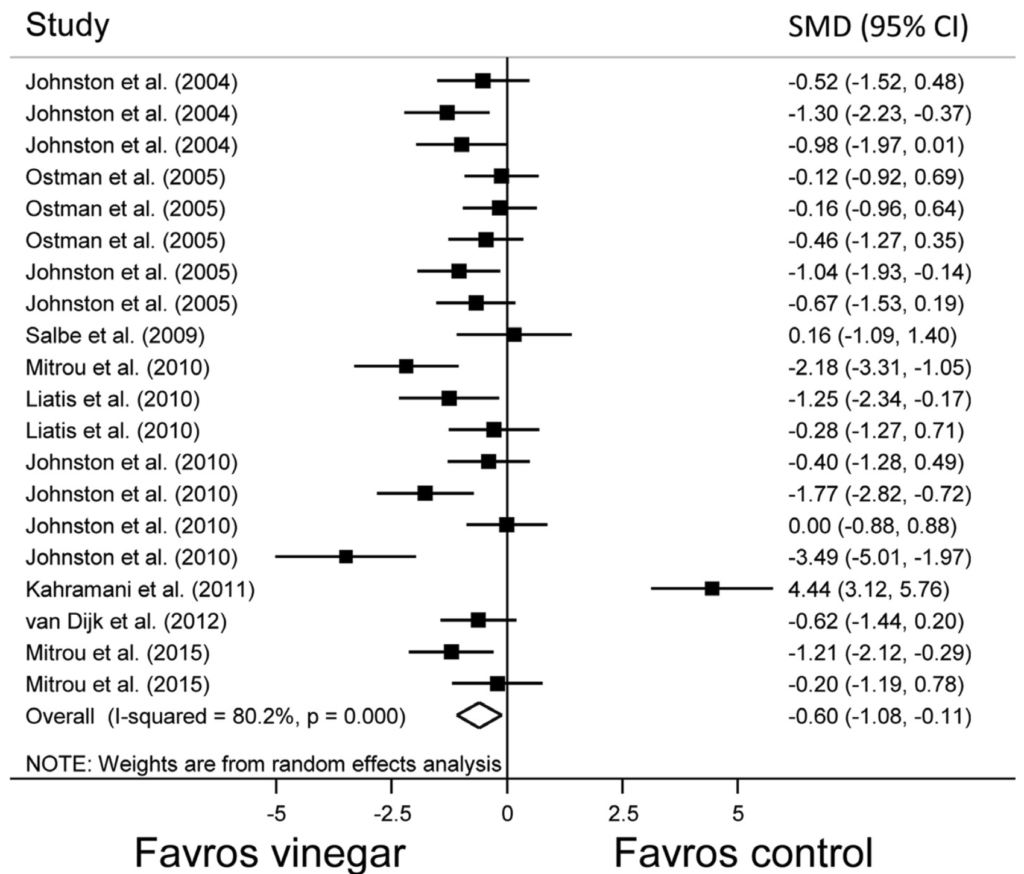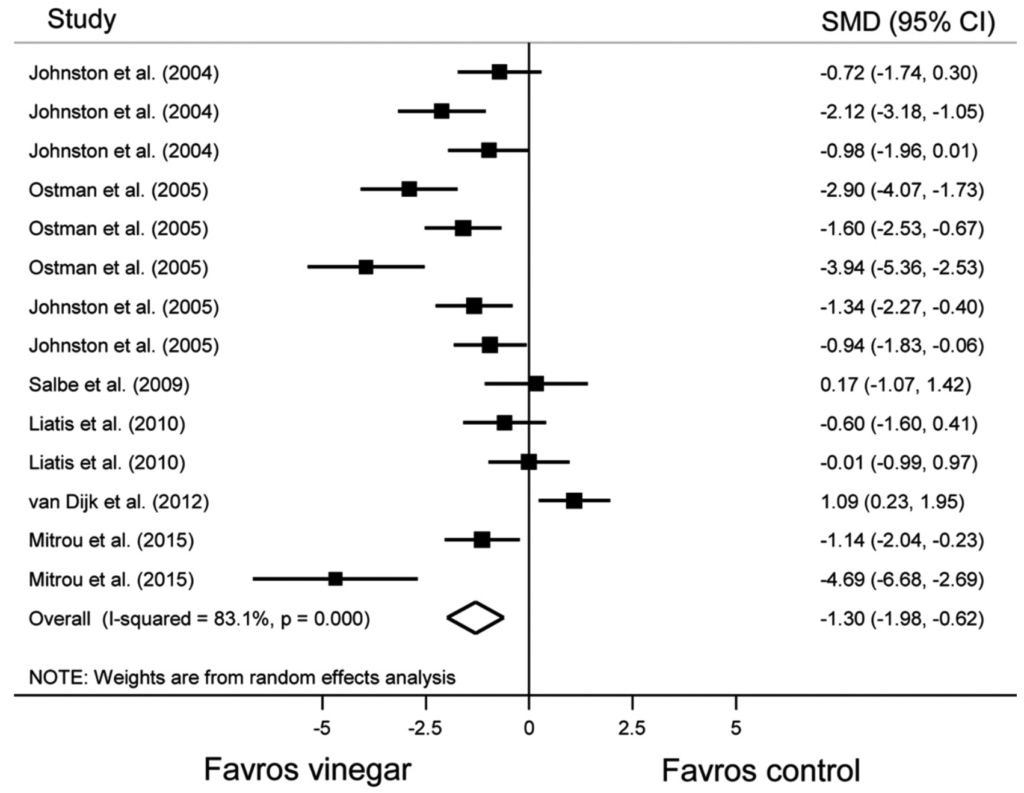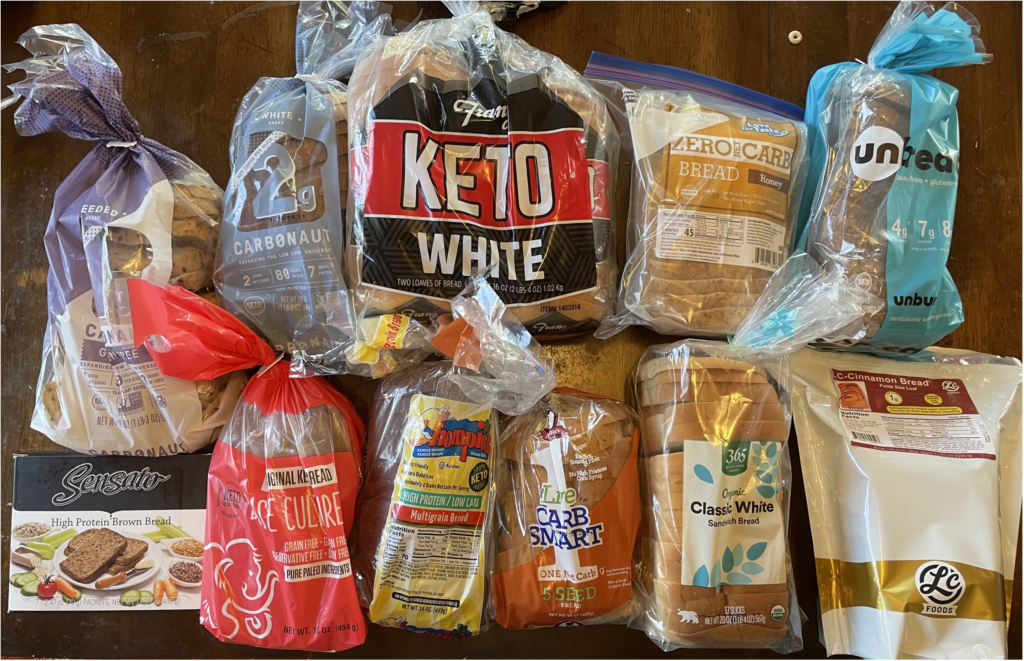Get new posts by email or rss feed
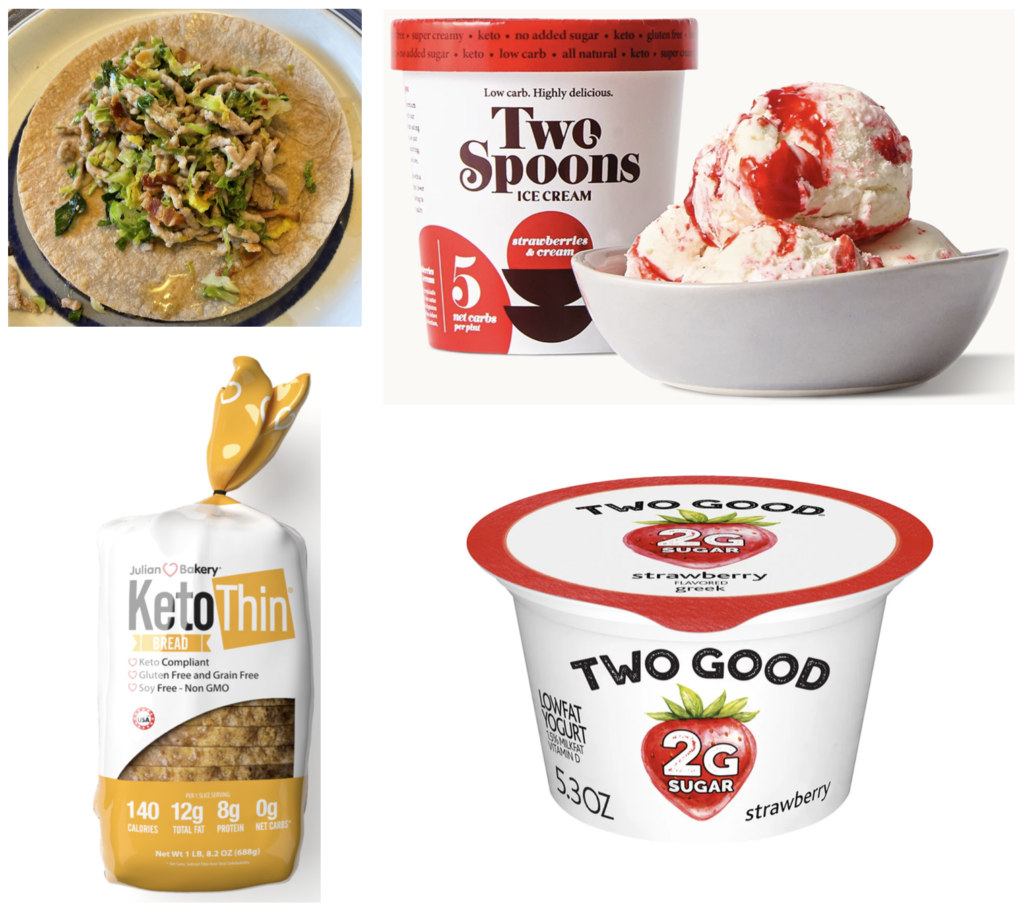
This week in my low-carb food study, I have Reader Requests!
For the past 6 weeks, I’ve been posting a series of studies on the blood glucose impact of low-carb foods (tortillas, cereal, ice-cream, bread). In the comments for each of these posts, I’ve been getting some great recommendations for other foods to try, so I decided to do a “Reader Requests” study where I measured the BG impact of the recommended foods.
The results were really interesting. In every category, there was a Reader Request that either had a much lower BG impact than what I had found or gave significant insight into the BG impact of different ingredients.
Here’s what I found:
Summary
- Tortillas
- The regular flour tortillas were much lower impact than I expected (30% peak BG & 70% iAuC vs. glucose), similar to that of the resistant wheat starch tortillas. This makes the resistant starch tortillas look even worse than I originally thought. Definitely never going to eat those again.
- Neither of the recommended low-carb tortillas (Mr. Tortilla & A La Madre) beat out La Tortilla Factory for taste, texture, and BG impact, so I’m going to stick with La Tortilla Factory for personal meals.
- Ice Cream
- All three of the requested low-carb brands had lower BG impact than any of the brands I’d previously tested. The Two Spoons brand, in particular, was extremely good and has the only fruit-flavored low-carb ice cream I’ve seen. The Two Spoons Strawberry and Brownie Fudge flavors are my new favorite by a pretty wide margin.
- Breads
- The Julian Bakery breads were very low carb, but didn’t taste much like regular bread. They were interesting, but if I’m looking for a bread replacement, I’d pick something else.
- Yogurt
- Two Good Strawberry Yogurt had good texture and low BG impact, but the flavor was too mild and had a stevia aftertaste I didn’t like.
- I would prefer to eat their plain yogurt and add my own mix-ins, maybe some nuts or chopped chocolate for a dessert.
Note: Readers also recommended several of the best breads that were included in the original bread post, including: Carb0naut (Can’t find the original request, sorry), Unbun Unbread (u/fawkesandholly, u/Impressive_Citron_84), Kiss My Keto (u/justjules83), and Base Culture (u/Spell_Chick).
If there’s anything else you want to see me test, please let me know in the comments.
– QD
Details
Tortillas
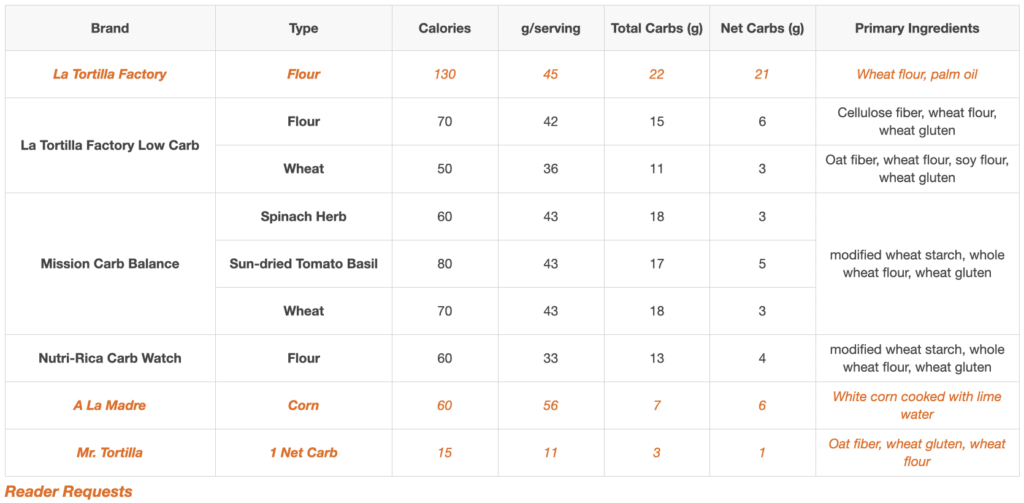
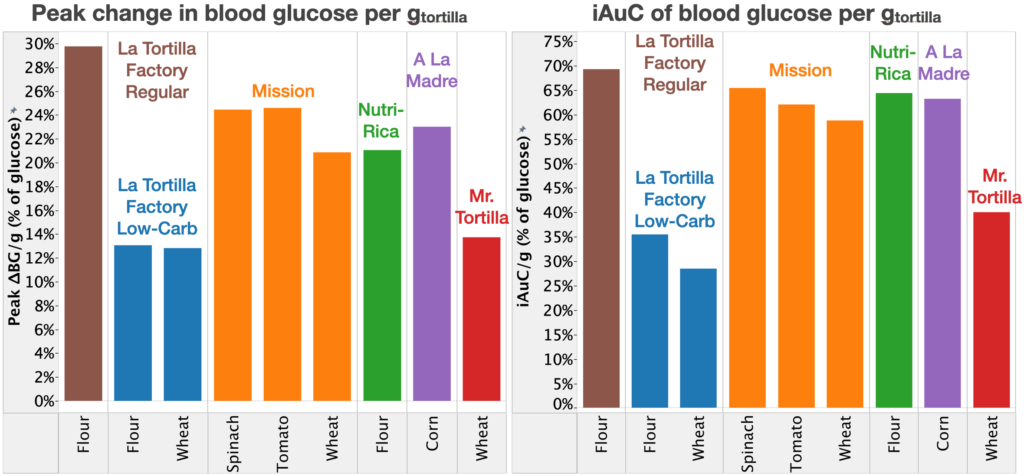
Summary: Nothing spectacular here, but the Mr. Tortilla could be good if you prefer smaller size tortillas/soft tacos.
- La Tortilla Factory Flour Tortilla (not low-carb, as a control) (Can’t find the original request, sorry)
- Much lower impact than I expected (30% peak BG & 70% iAuC vs. glucose), similar to that of the resistant wheat starch tortillas. This makes the resistant starch tortillas look even worse than I originally thought. Definitely never going to eat those again.
- A La Madre Low-Carb Corn Tortillas (Requested by u/ADifferentJason)
- About the same BG impact as the regular flour tortillas (23% peak BG & 63% iAuC vs. glucose). Not great and not consistent with the claimed net carbs.
- Taste was only ok, too. Will not use again.
- Mr. Tortilla 1 Net Carb Tortilla (Can’t find the original request, sorry)
- About the same BG impact as the best-in-class La Tortilla Factory tortillas (14% peak BG & 40% iAuC vs. glucose, or about half the LTF flour tortillas)
- I didn’t like the taste as much as the LTF low-carb tortillas (bit too gritty), but they’re taco sized, which is very convenient for some recipes.
- All-in-all, I found these to be ok, but will continue to buying the La Tortilla Factory low-carb tortillas going forward
Ice Cream
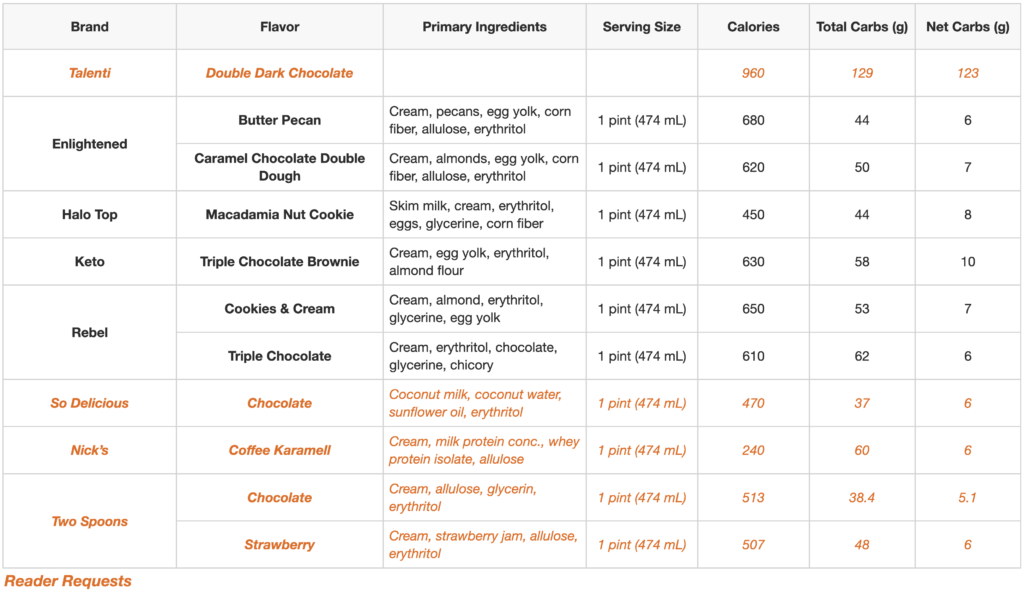
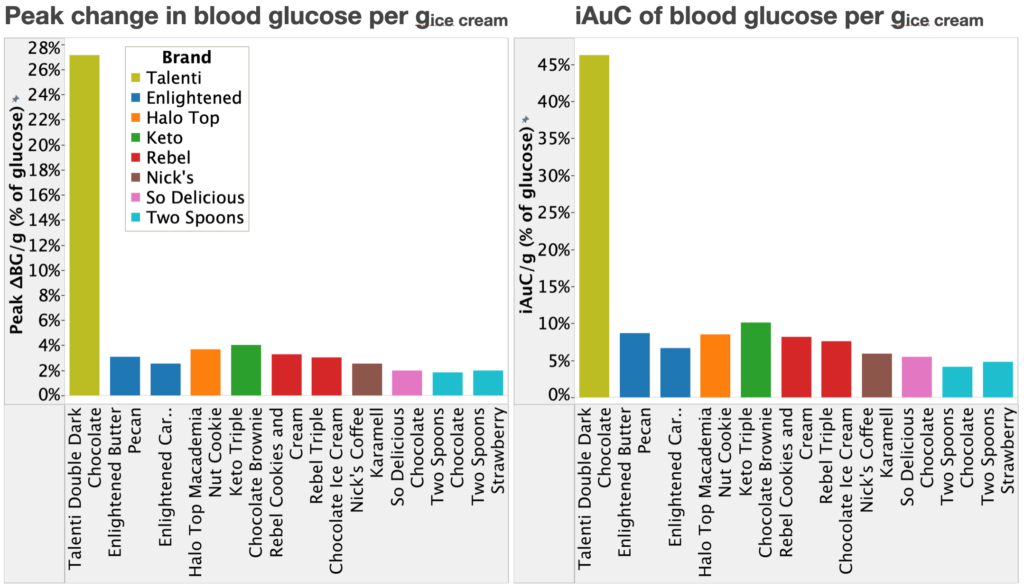
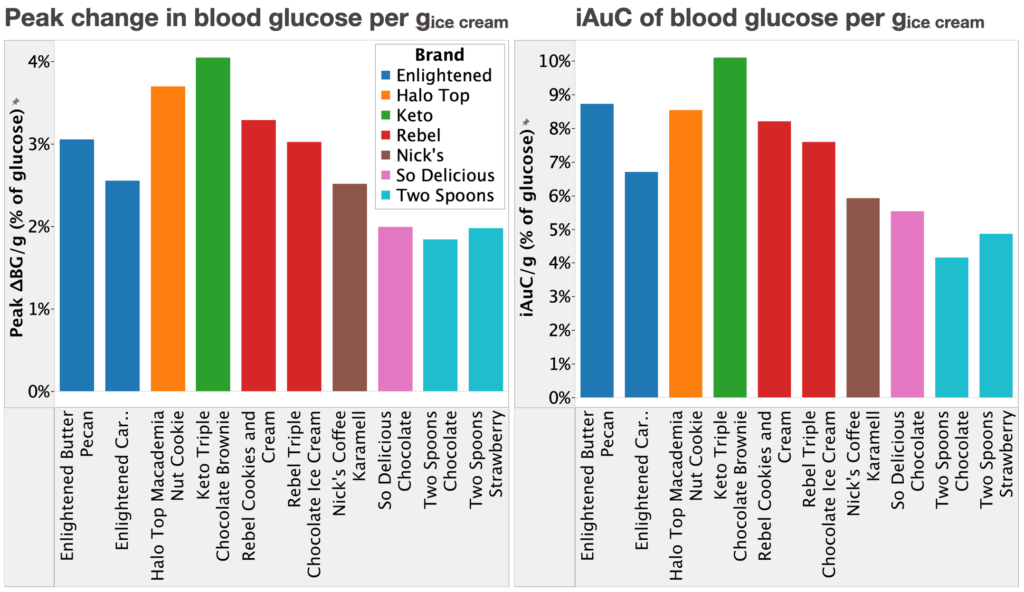
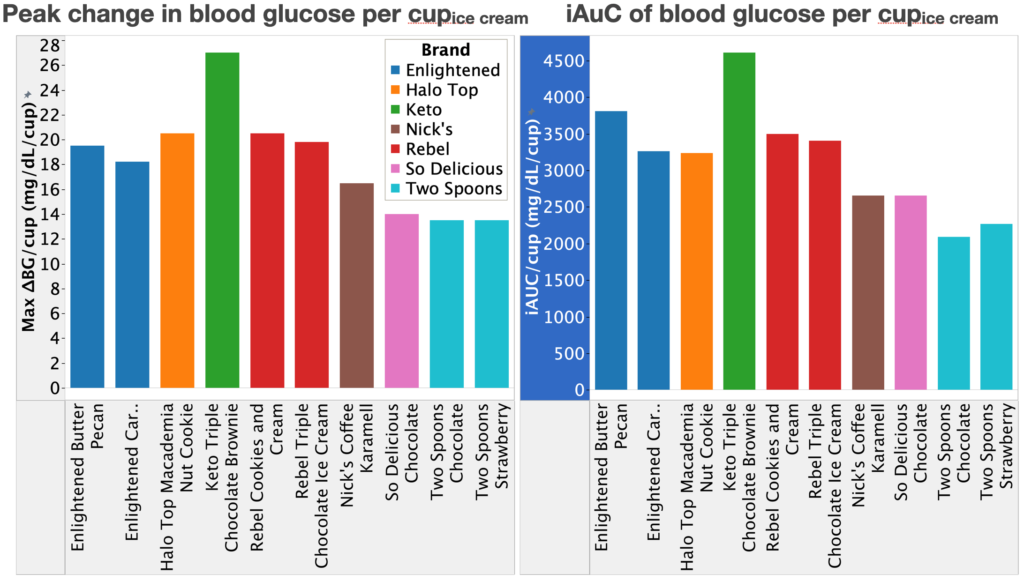
Summary: All three of the requested low-carb brands had lower BG impact than any of the brands I’d previously tested. The Two Spoons brand, in particular, was extremely good and has the only fruit-flavored low-carb ice cream I’ve seen. The Two Spoons Strawberry and Brownie Fudge flavors are my new favorite by a pretty wide margin.
- Talenti Double Dark Chocolate (not low-carb, as a control) (Can’t find the original request, sorry)
- BG impact was consistent with the carb count (peak BG 27% of glucose, total carbs 31% of mass), and way higher than any of the keto brands. Not surprising.
- So Delicious Chocolate (u/alltheketoladies)
- Lower BG impact than any of the original brands I tested (2.0% peak BG & 5.5% iAuC vs. glucose)
- Much harder texture out of the freezer than heavy cream-based ice cream. Even after sitting out for 35 min., I had to microwave it to get to my desired softness.
- Had a strong chocolate and coconut taste. A lot lighter/airy than the heavy cream based brands, but still had a “creamy” texture.
- Overall, I didn’t like it as much as the other brands, but I could see some people preferring it.
- Nick’s Coffee Karamell (u/milliondollarman2019, u/WakeOfTheFlood)
- Lower BG impact than any of the original brands I tested (2.5% peak BG & 5.9% iAuC vs. glucose)
- Softest texture of any of the brands. This and Two Spoons were the only keto ice creams that could be “scooped” straight from the freezer.
- The Coffee Karamell flavor is more mild than I’d like, but it’s ok. I’d really like to try some of their other flavors, but this is the only one in my grocery that’s low-carb.
- Way lower calories than other brands (240 kcal/pint vs. 470-680 kcal for other brands). Not sure why, though maybe it’s got a higher water content with more stabilizers & emulsifiers to soften.
- Warning: The nutrition label on their website doesn’t match with what I found in the store. The BG impact matches up with the label, so if you’re buying this, make sure you read the label carefully.
- Two Spoons Chocolate & Strawberry (u/Harleydemondog)
- The lowest BG impact of any ice cream I’ve tested:
- Chocolate: 1.8% peak BG & 4.2% iAuC vs. glucose
- Strawberry: 2.0% peak BG & 4.9% iAuC vs. glucose
- This has the most similar texture to regular ice cream of all the brands I’ve tried. Scoopable, but a bit hard straight from the freezer. 1 min. in the microwave at 30% power got it to my preferred texture.
- The chocolate flavor was good, though I’d prefer a stronger flavor.
- The strawberry was amazing. Extremely smooth, creamy taste and the strawberry mix-ins taste like firm strawberry jam. This is the only keto fruit flavored ice cream I’ve found. I’ve always preferred fruit-flavored ice-creams and this was a great example.
- I also tried their Brownie Fudge & Coffee Toffee flavors, but didn’t do a BG test
- Brownie fudge: My second favorite after strawberry. A stronger chocolate flavor than chocolate and the brownies gave a nice flavor and textural contrast (even stronger chocolate flavor & soft chewy texture).
- Coffee Toffee: Very strong coffee flavor with a great texture contrast from chocolate chips and toffee. If you like coffee ice cream, I’d definitely recommend it.
- The lowest BG impact of any ice cream I’ve tested:
Breads
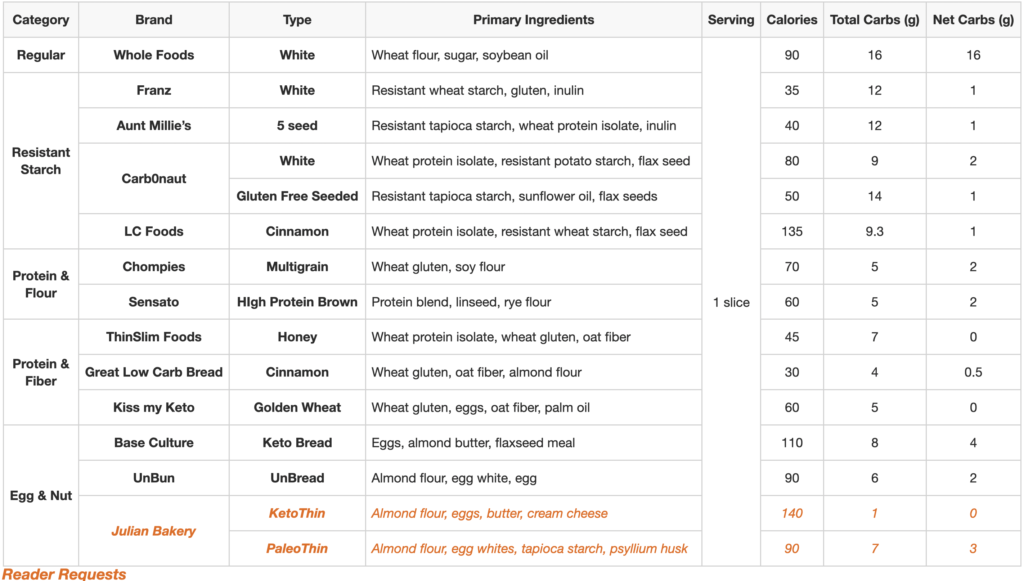
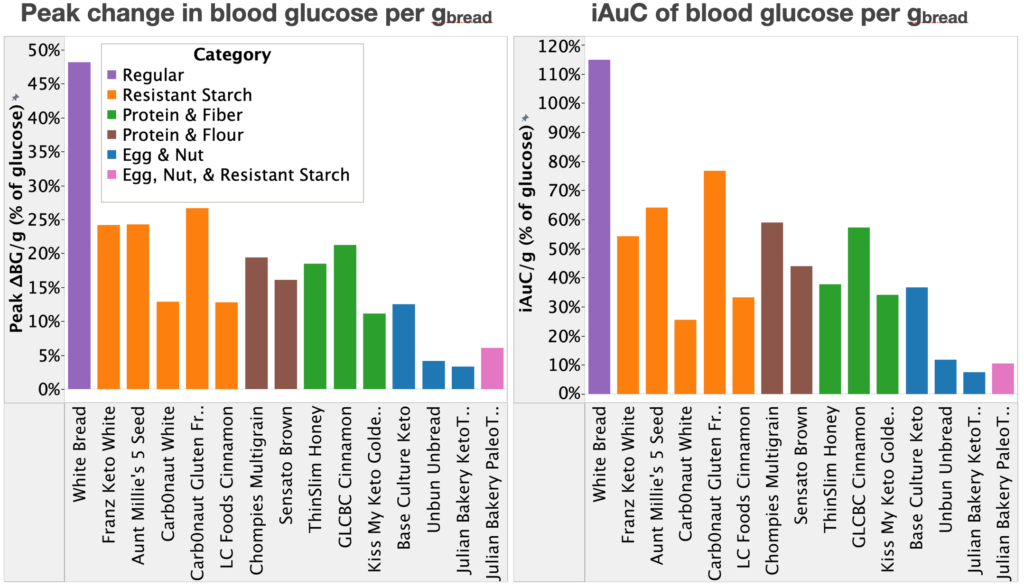
Summary: The Julian Bakery breads were very low carb, but didn’t taste much like regular bread. They were interesting, but if I’m looking for a bread replacement, I’d pick something else.
- Julian Bakery KetoThin Bread (Can’t find the original request, sorry)
- The lowest BG impact of any of the breads I’ve tested (3% peak BG & 8% iAuC vs. glucose)
- This one was a bit odd. It was soft, moist, and tasted pretty good, but not at all like bread. You can really taste the cream cheese in it.
- When toasted or fried, it became slightly crispy and the cream cheese taste was much less noticeable.
- Julian Bakery PaleoThin Sandwich Bread (Can’t find the original request, sorry)
- 3rd lowest BG impact, after Julian Bakery KetoThin & UnBun UnBread (6% peak BG & 10% iAuC vs. glucose)
- The bread was a little wet when I opened it and tasted slightly sour. Taste was not that great, though maybe it was starting to spoil? I ate it right after opening the sealed package and 3 days after it arrived, so if it was spoiled, that’s not a good sign.
Yogurt
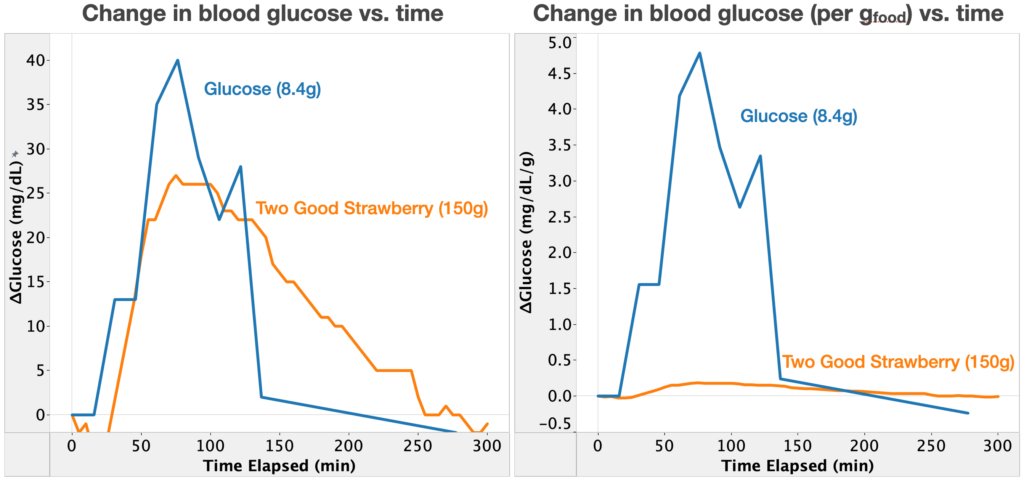
- Two Good Strawberry (u/ploddingdiplodocus)
- Low BG impact (4% peak BG & 7% iAuC vs. glucose), a little higher than its net carb count (2% of mass)
- Strawberry flavor is very mild and has a stevia aftertaste that I don’t like.
- Texture is great, creamy and not chalky like some greek yogurts
- I didn’t like this and would prefer to eat their plain yogurt and add my own mix-ins, maybe some nuts or chopped chocolate for a dessert.
Design/Methods
Foods. Full nutrient and ingredient info here. Key nutrition facts in the tables in above.
Procedure. At 5:00a, I took 4.5u of Novolog (fast acting insulin, duration of 2-4h), then drank a Ketochow shake (website, BG testing) at 5:30a. After that, no food or calorie-containing drinks were consumed and no exercise was performed. Non-calorie-containing drinks were consumed as desired (water or caffeine-free tea). At 10:30am-12 pm, the substance to be tested was eaten as rapidly as comfortable and notes on taste and texture were recorded (before observing any change in blood sugar).
Blood sugar was monitored for 5h using a Dexcom G6. Calibration was performed 15-30 min. before the start of each experiment.
Separately, all breads were toasted using a Brava oven (wheat toast, setting 7). Taste and texture were recorded.
Data Processing & Visualization. iAUC was calculated using the trapezoid method (see data spreadsheet for details). Data was visualized using Tableau.
Medication. During these experiments, I took long-acting basal insulin each evening at 9pm (Lantus, 1.5u) and 2000 mg of metformin and multivitamin each morning at 5am. I did not dose for the experimental food ingested.
Data
- Formatted raw data, peak blood glucose, iAuC, and time to peak data
- Summary data, ingredient details, and taste assessments
